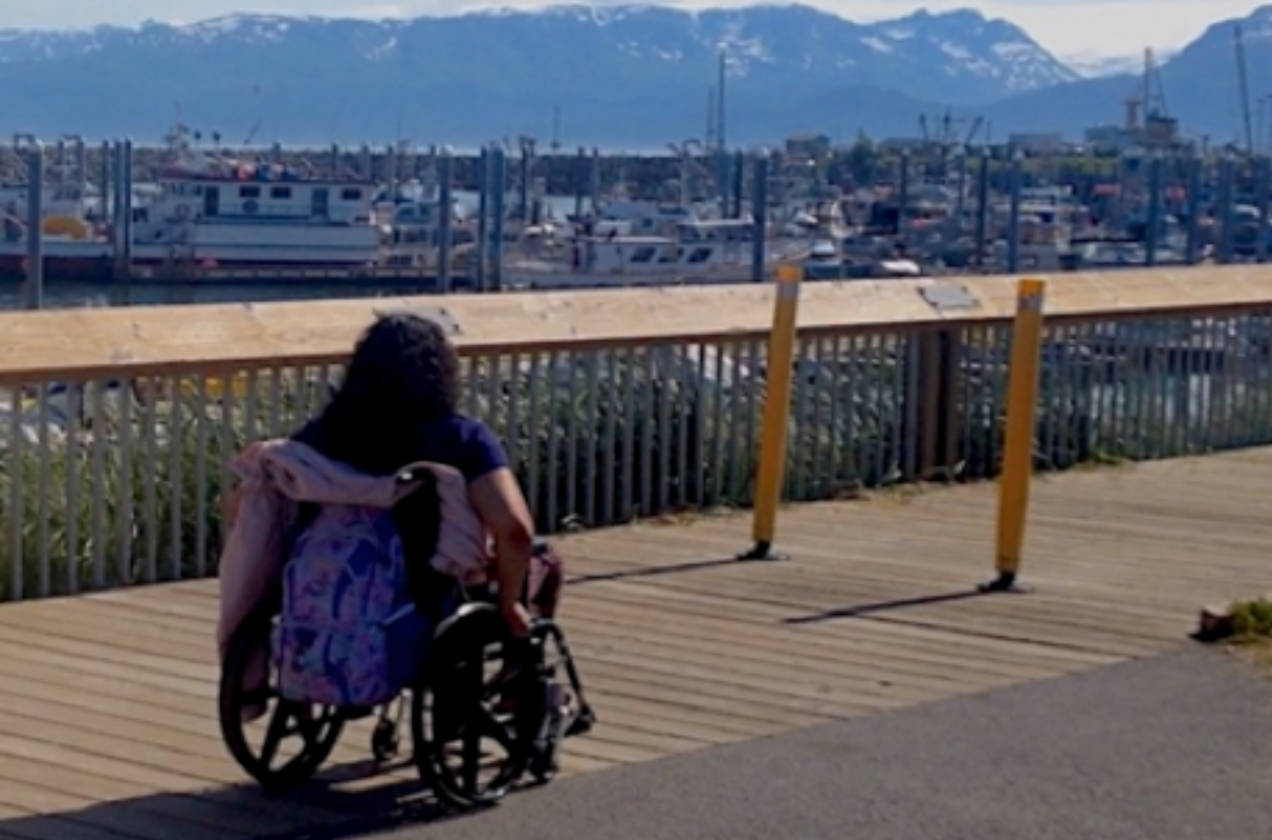“Accessible Homer” has a nice ring to it. For Homer, it could have a nice monetary ring to it too. A 2015 national survey by Chicago’s Open Doors Organization (https://opendoorsnfp.org/) showed that 71% of adults who identify themselves as having a disability —over 26 million people — took 73 million trips for pleasure and/or business and spent $17.3 billion annually on travel during the period surveyed.
This doesn’t include baby boomers who don’t identify as having a disability, even if they use a walker, need to travel with refrigerated meds, or have other challenges — but the Census Bureau notes that about 50% of folks over 65 have some sort of impairment.
TravelAgentCentral.com estimates that the accessible/inclusive travel market is growing 22 percent annually. That means that there’s a huge — and largely underserved — market of folks with disabilities who travel alone and with friends or family. No town in Alaska actively reaches out to these travelers in its marketing or is working community-wide to improve its accessibility and inclusiveness.
It makes social and economic sense to become the first Alaskan community to market itself as ready, willing, and able to welcome and serve visitors with disabilities, to become a place where visitors and residents alike find accessible adventure and enjoyment in an atmosphere of respect, support, and helpful assistance. At the Independent Living Center, Total Recreation and Independnt Living Services, or TRAILS, is working to help that happen through its accessible Homer campaign. That campaign focuses on:
• Raising community awareness about accessibility-related issues and opportunities.
• Developing an “accessible Homer” website that’s easy to find and useful for folks with disabilities who want to check out Homer as a destination. Businesses have a huge role to play in this, since TRAILS will rely on them to let us know about their accessibility.
• Compiling and sharing information to help businesses improve their accessibility and become more familiar with customer services most appreciated by visitors experiencing disabilities.
• Publicizing Homer to the accessible/inclusive travel market.
Here are a few more interesting facts about the accessible/inclusive travel market (from Open Doors Organization).
• Travelers with disabilities rarely travel alone; median group size was 2.7 in 2015. The multiplier effect means these groups spend $38 billion or more annually.
• Individuals with disabilities carefully use the internet — the internet is their primary source of information about accessible travel (58%), followed by previous experience (48%) and friends and family (38%).
• Brand loyalty and word of mouth are very important to travelers with disabilities.
• Six out of ten travelers with disabilities use mobile devices to support their needs, most often hotel apps (32%) or airline and airport websites (27%). Smart businesses make their apps functional for all users.
• Key lodging-related problems include inconveniently located guest rooms, doors that are hard to open, and inaccessible shower facilities.
Access, services, equipment, and sensitivity that benefit people experiencing disabilities benefit everybody — from moms with strollers to athletes on crutches to customers forgetting their reading glasses. What’s more, an accessible town enables residents to remain in the community as they age or develop a disability. Watching friends and family move away just because the town isn’t accessible enough to them anymore is heartbreaking to a community.
To learn more about the accessible Homer campaign and to get involved in ways that work for your business, call TRAILS at the Independent Living Center, 235-7911, email Devony (dlehner@peninsulailc.org), or visit TRAILS at http://peninsulailc.org/TRAILS. Help Homer be a great place to visit for everybody.
Devony Lehner is the TRAILS activity coordinator.


